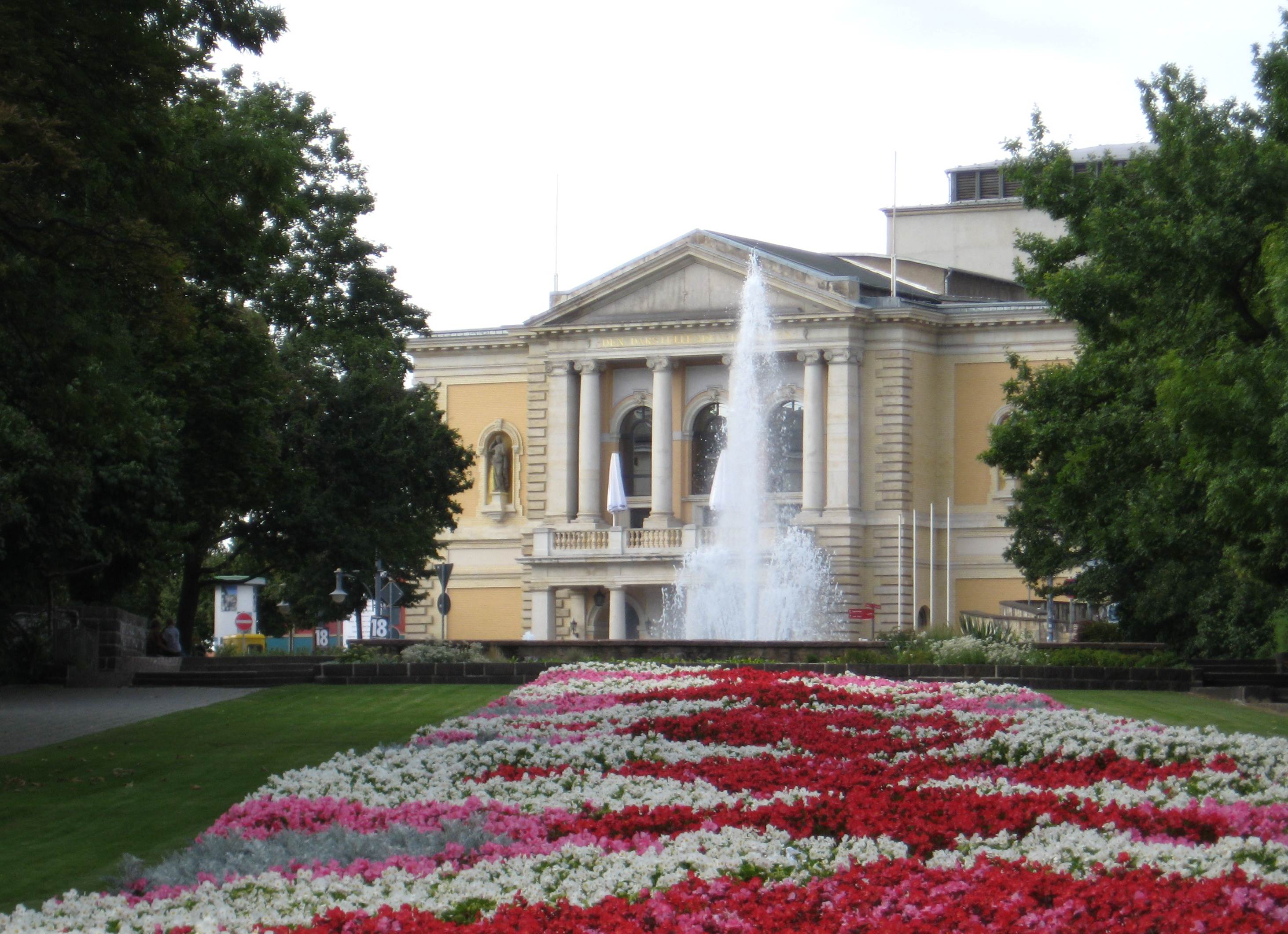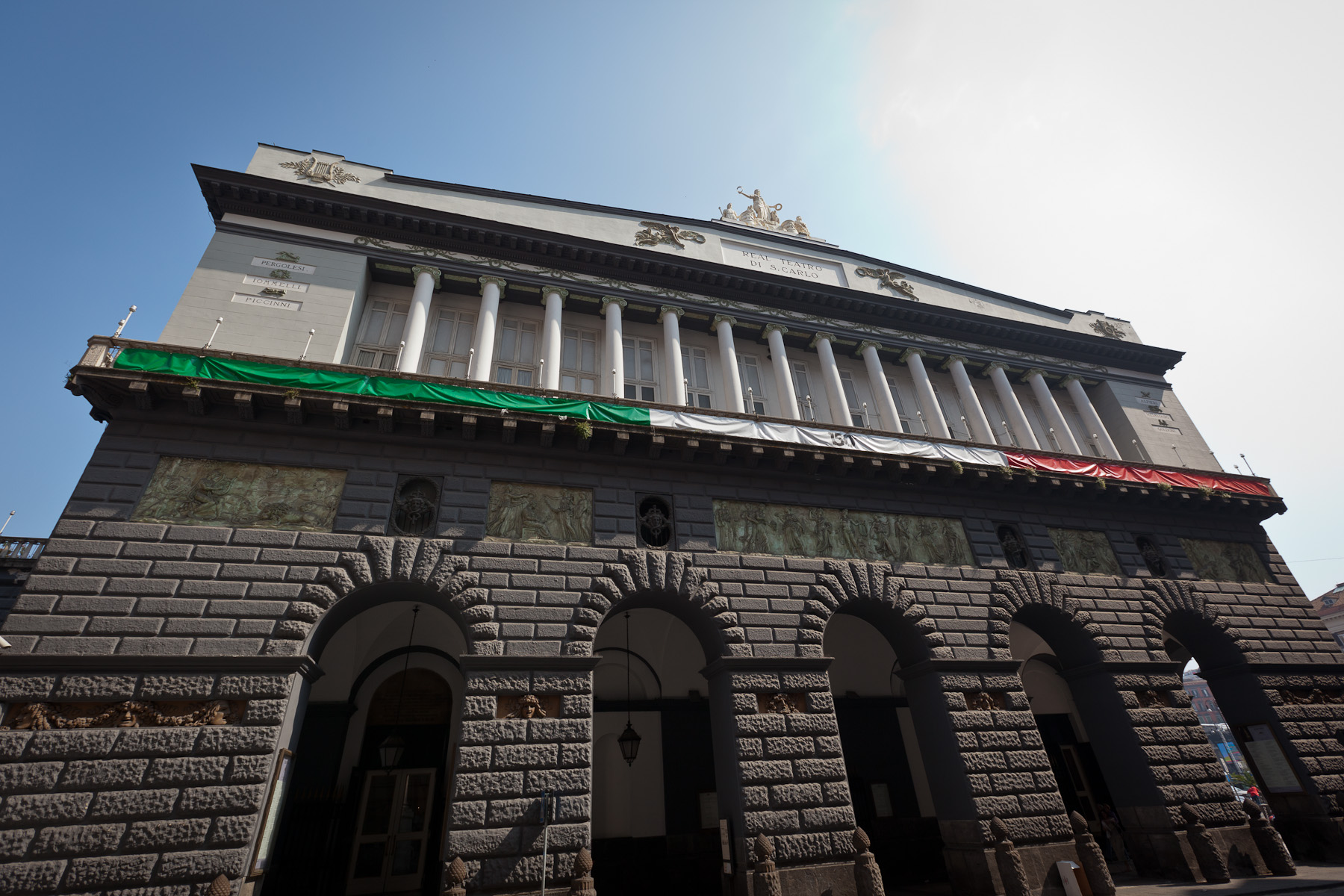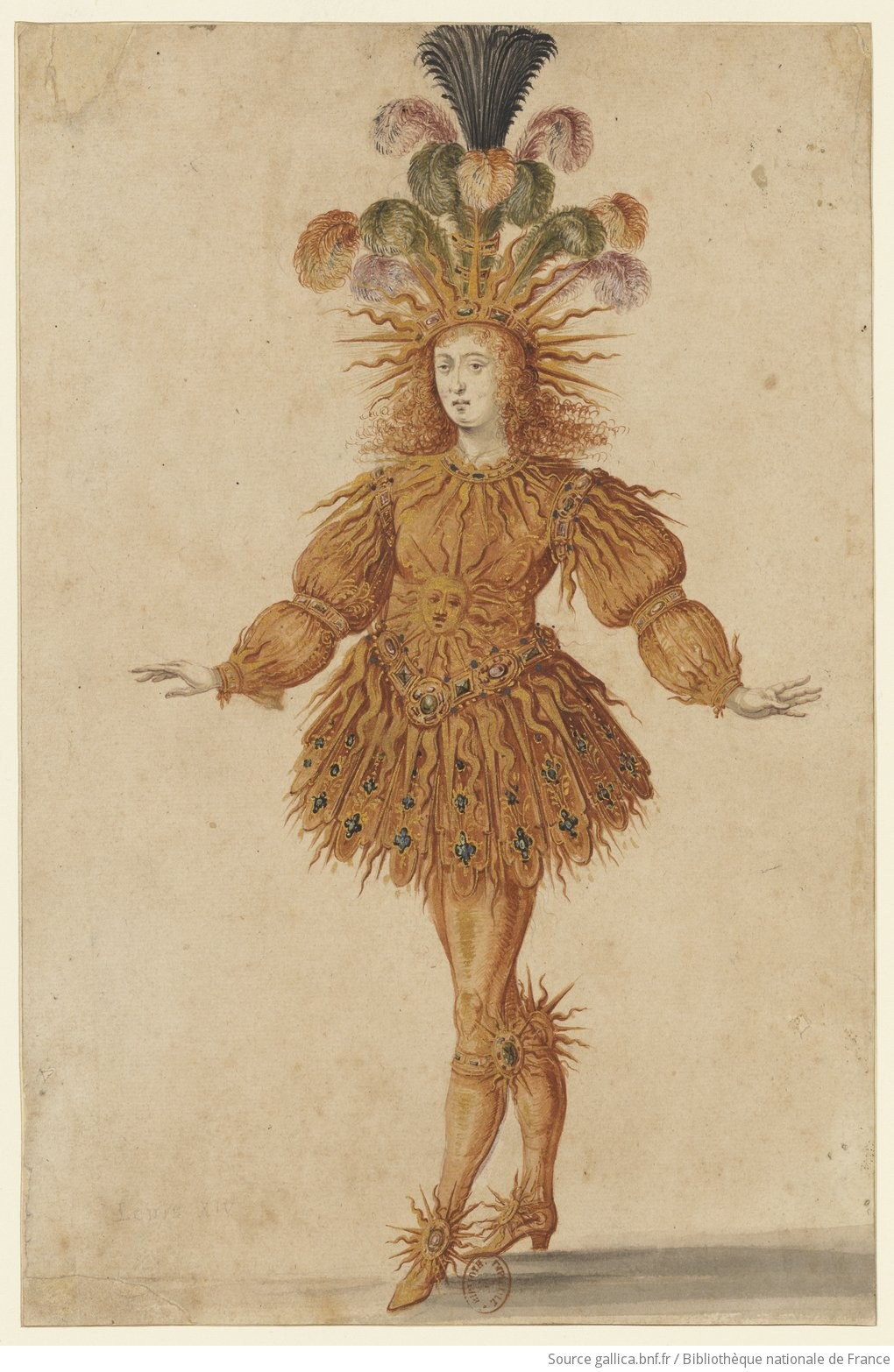|
Opernhaus Halle
The Halle Opera House () is an opera house in Halle, Saxony-Anhalt. Originally named the Halle Town Theatre (), the theatre was built in 1886. A bomb attack on 31 March 1945 destroyed much of the original building. Restorative work ensued a few years later, and the theatre reopened in 1951 under the name Landestheater Halle. In January 1992 it was renamed to its current title. The theatre is currently used for performances of opera, ballet, and orchestra An orchestra (; ) is a large instrumental ensemble typical of classical music, which combines instruments from different families. There are typically four main sections of instruments: * bowed string instruments, such as the violin, viola, c ...l concerts. It is also the main performance venue for the annual summer Handel Festival held in the city. References External links * Music venues completed in 1886 Buildings and structures in Halle (Saale) Opera houses in Germany Ballet venues Theatres completed ... [...More Info...] [...Related Items...] OR: [Wikipedia] [Google] [Baidu] |
Opera House
An opera house is a theatre building used for performances of opera. It usually includes a stage, an orchestra pit, audience seating, and backstage facilities for costumes and building sets. While some venues are constructed specifically for operas, other opera houses are part of larger performing arts centers. Indeed, the term ''opera house'' is often used as a term of prestige for any large performing-arts center. History Italy is a country where opera has been popular through the centuries among ordinary people as well as wealthy patrons and it continues to have many working opera houses such as Teatro Massimo in Palermo (the biggest in Italy), Teatro di San Carlo in Naples (the world's oldest working opera house) and Teatro La Scala in Milan. In contrast, there was no opera house in London when Henry Purcell was composing and the first opera house in Germany, the Oper am Gänsemarkt, was built in Hamburg in 1678, followed by the Oper am Brühl in Leipzig in 1693, and t ... [...More Info...] [...Related Items...] OR: [Wikipedia] [Google] [Baidu] |
Halle, Saxony-Anhalt
Halle (Saale), or simply Halle (; from the 15th to the 17th century: ''Hall in Sachsen''; until the beginning of the 20th century: ''Halle an der Saale'' ; from 1965 to 1995: ''Halle/Saale'') is the largest city of the German state of Saxony-Anhalt, the fifth most populous city in the area of former East Germany after (East) Berlin, Leipzig, Dresden and Chemnitz, as well as the 31st largest city of Germany, and with around 239,000 inhabitants, it is slightly more populous than the state capital of Magdeburg. Together with Leipzig, the largest city of Saxony, Halle forms the polycentric Leipzig-Halle conurbation. Between the two cities, in Schkeuditz, lies Leipzig/Halle International Airport. The Leipzig-Halle conurbation is at the heart of the larger Central German Metropolitan Region. Halle lies in the south of Saxony-Anhalt, in the Leipzig Bay, the southernmost part of the North German Plain, on the River Saale (a tributary of the Elbe), which is the third longest river flo ... [...More Info...] [...Related Items...] OR: [Wikipedia] [Google] [Baidu] |
Opera
Opera is a form of theatre in which music is a fundamental component and dramatic roles are taken by singers. Such a "work" (the literal translation of the Italian word "opera") is typically a collaboration between a composer and a librettist and incorporates a number of the performing arts, such as acting, scenery, costume, and sometimes dance or ballet. The performance is typically given in an opera house, accompanied by an orchestra or smaller musical ensemble, which since the early 19th century has been led by a conductor. Although musical theatre is closely related to opera, the two are considered to be distinct from one another. Opera is a key part of the Western classical music tradition. Originally understood as an entirely sung piece, in contrast to a play with songs, opera has come to include numerous genres, including some that include spoken dialogue such as '' Singspiel'' and '' Opéra comique''. In traditional number opera, singers employ two styles of ... [...More Info...] [...Related Items...] OR: [Wikipedia] [Google] [Baidu] |
Ballet
Ballet () is a type of performance dance that originated during the Italian Renaissance in the fifteenth century and later developed into a concert dance form in France and Russia. It has since become a widespread and highly technical form of dance with its own vocabulary. Ballet has been influential globally and has defined the foundational techniques which are used in many other dance genres and cultures. Various schools around the world have incorporated their own cultures. As a result, ballet has evolved in distinct ways. A ''ballet'' as a unified work comprises the choreography and music for a ballet production. Ballets are choreographed and performed by trained ballet dancers. Traditional classical ballets are usually performed with classical music accompaniment and use elaborate costumes and staging, whereas modern ballets are often performed in simple costumes and without elaborate sets or scenery. Etymology Ballet is a French word which had its origin in Italian ... [...More Info...] [...Related Items...] OR: [Wikipedia] [Google] [Baidu] |
Orchestra
An orchestra (; ) is a large instrumental ensemble typical of classical music, which combines instruments from different families. There are typically four main sections of instruments: * bowed string instruments, such as the violin, viola, cello, and double bass * woodwinds, such as the flute, oboe, clarinet, saxophone, and bassoon * Brass instruments, such as the horn, trumpet, trombone, cornet, and tuba * percussion instruments, such as the timpani, snare drum, bass drum, cymbals, triangle, tambourine, and mallet percussion instruments Other instruments such as the piano, harpsichord, and celesta may sometimes appear in a fifth keyboard section or may stand alone as soloist instruments, as may the concert harp and, for performances of some modern compositions, electronic instruments and guitars. A full-size Western orchestra may sometimes be called a or philharmonic orchestra (from Greek ''phil-'', "loving", and "harmony"). The actual number of musicians employ ... [...More Info...] [...Related Items...] OR: [Wikipedia] [Google] [Baidu] |
Handel Festival, Halle
The Handel Festival (in German: Händel-Festspiele) in Halle an der Saale, Saxony-Anhalt, is an international music festival concentrating on the music of George Frideric Handel in the composer's birthplace. It was founded in 1922 and it grew into a center of Handel studies and performance in Europe. Especially Handel's operas have been staged regularly, some of them as first revivals. History The first Handel Festival in Halle was conducted in 1922,George Frideric Handel Halle feiert den "Weltbürger Händel" MDR 2009 three years ... [...More Info...] [...Related Items...] OR: [Wikipedia] [Google] [Baidu] |
Music Venues Completed In 1886
Music is generally defined as the art of arranging sound to create some combination of form, harmony, melody, rhythm or otherwise expressive content. Exact definitions of music vary considerably around the world, though it is an aspect of all human societies, a cultural universal. While scholars agree that music is defined by a few specific elements, there is no consensus on their precise definitions. The creation of music is commonly divided into musical composition, musical improvisation, and musical performance, though the topic itself extends into #Academic study, academic disciplines, Music journalism, criticism, Philosophy of music, philosophy, and Music psychology, psychology. Music may be performed or improvised using a vast range of musical instrument, instruments, including the human voice. In some musical contexts, a performance or composition may be to some extent improvised. For instance, in Hindustani classical music, the performer plays spontaneousl ... [...More Info...] [...Related Items...] OR: [Wikipedia] [Google] [Baidu] |
Buildings And Structures In Halle (Saale)
A building, or edifice, is an enclosed structure with a roof and walls standing more or less permanently in one place, such as a house or factory (although there's also portable buildings). Buildings come in a variety of sizes, shapes, and functions, and have been adapted throughout history for a wide number of factors, from building materials available, to weather conditions, land prices, ground conditions, specific uses, prestige, and aesthetic reasons. To better understand the term ''building'' compare the list of nonbuilding structures. Buildings serve several societal needs – primarily as shelter from weather, security, living space, privacy, to store belongings, and to comfortably live and work. A building as a shelter represents a physical division of the human habitat (a place of comfort and safety) and the ''outside'' (a place that at times may be harsh and harmful). Ever since the first cave paintings, buildings have also become objects or canvasses of much artistic ... [...More Info...] [...Related Items...] OR: [Wikipedia] [Google] [Baidu] |
Opera Houses In Germany
Opera is a form of theatre in which music is a fundamental component and dramatic roles are taken by singers. Such a "work" (the literal translation of the Italian word "opera") is typically a collaboration between a composer and a librettist and incorporates a number of the performing arts, such as acting, scenery, costume, and sometimes dance or ballet. The performance is typically given in an opera house, accompanied by an orchestra or smaller musical ensemble, which since the early 19th century has been led by a conductor. Although musical theatre is closely related to opera, the two are considered to be distinct from one another. Opera is a key part of the Western classical music tradition. Originally understood as an entirely sung piece, in contrast to a play with songs, opera has come to include numerous genres, including some that include spoken dialogue such as ''Singspiel'' and ''Opéra comique''. In traditional number opera, singers employ two styles of singing: ... [...More Info...] [...Related Items...] OR: [Wikipedia] [Google] [Baidu] |
Ballet Venues
Ballet () is a type of performance dance that originated during the Italian Renaissance in the fifteenth century and later developed into a concert dance form in France and Russia. It has since become a widespread and highly technical form of dance with its own vocabulary. Ballet has been influential globally and has defined the foundational techniques which are used in many other dance genres and cultures. Various schools around the world have incorporated their own cultures. As a result, ballet has evolved in distinct ways. A ''ballet'' as a unified work comprises the choreography and music for a ballet production. Ballets are choreographed and performed by trained ballet dancers. Traditional classical ballets are usually performed with classical music accompaniment and use elaborate costumes and staging, whereas modern ballets are often performed in simple costumes and without elaborate sets or scenery. Etymology Ballet is a French word which had its origin in Italian '' ... [...More Info...] [...Related Items...] OR: [Wikipedia] [Google] [Baidu] |
Theatres Completed In 1886
Theatre or theater is a collaborative form of performing art that uses live performers, usually actors or actresses, to present the experience of a real or imagined event before a live audience in a specific place, often a stage. The performers may communicate this experience to the audience through combinations of gesture, speech, song, music, and dance. Elements of art, such as painted scenery and stagecraft such as lighting are used to enhance the physicality, presence and immediacy of the experience. The specific place of the performance is also named by the word "theatre" as derived from the Ancient Greek θέατρον (théatron, "a place for viewing"), itself from θεάομαι (theáomai, "to see", "to watch", "to observe"). Modern Western theatre comes, in large measure, from the theatre of ancient Greece, from which it borrows technical terminology, classification into genres, and many of its themes, stock characters, and plot elements. Theatre artist Patrice Pavi ... [...More Info...] [...Related Items...] OR: [Wikipedia] [Google] [Baidu] |





.jpg)




